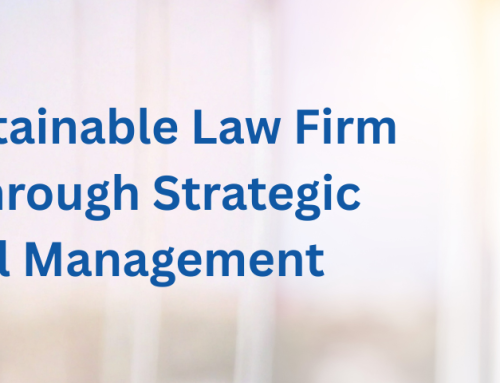Using AI Within Your Law Firm (Part Two)

Photo by Steve Johnson on Unsplash
Earlier this year, we attempted to address the question, Can AI Be Used To Help My Law Firm Grow?
However, since then, the use of AI both within businesses more broadly and in the legal sector has only continued to increase. There are many reasons for this, including updates to popular AI systems such as Google’s Gemini and ChatGPT.
As such, we decided it is worth revisiting the topic and discussing some ways AI can be used within your law firm.
Why use AI within your law firm?
Before delving into the complicated matter of whether you should be using AI in your law firm (and the ethical and legal conversations that come alongside this), it’s first important to understand why so many legal practitioners are turning to this technology in the first place.
For example, burnout is particularly prevalent within the legal sector, with nearly two-thirds of lawyers admitting to experiencing burnout in the past year alone. Time-saving technologies like AI can help remedy this by reducing their workload and automating time-consuming tasks. In short, they’re often viewed as a ticket to boosting workplace wellness productivity.
Using AI technologies in this regard can also help legal practices to bolster their finances. After all, by removing the burden of time-consuming but non-billable tasks from an employee’s to-do list, they can spend more time working on cases or connecting with clients. In addition to this, they can also be used to improve cash flow through more efficient invoicing.
What are the implications of using AI within your law firm?
If you’re considering using AI within your law firm, you must do so carefully. These tools should be used to supplement your team’s skills and insight, not replace them. This is because generative AI systems can produce biassed results that skew case outcomes. In contrast, lawyers can look at the information presented to them and gather a more nuanced and fair approach.
In addition to this, you need to be wary of the consequences of using AI incorrectly, especially when handling potentially sensitive data. Data leaks or other issues can damage your firm’s reputation irreparably while also leaving your firm open to significant financial and legal trouble.
While there are no specific laws governing the use of generative AI within the legal sector, this is likely something that will come into place over the coming few years.
So, how can I use AI within my law firm?
Generative AI can help you take your law firm to new heights when deployed correctly.
For example, you can use AI to streamline client communications, ensuring no phone calls or messages go unanswered. One way in which you can achieve this goal is by adding an AI-powered chatbot to your website. This way, prospective clients can receive prompt yet accurate answers to their questions, even outside your regular business hours.
AI can also be a valuable research tool, especially when using systems specifically built for use within the legal sector. For example, you can rely on these tools to find relevant precedents and statutes when working on a specific case instead of having to search through countless documents manually.
However, it’s important to note that these tools should only be used to supplement research, as opposed to replacing it. This means that you cannot afford to ‘skip over’ reading the documents in their entirety, in order to ensure you are continuing to put your client’s best interests first. Remember, while AI may seem to know everything – it is capable of making mistakes. As such, you should proceed with caution when using this as a research tool.
As mentioned above, AI tools can also be used for fast, effective invoicing, improving cash flow within your law firm. They can also send out reminders or prompts for late invoices!
Final Thought.
In short, it’s clear that AI will play a big role in the legal sector in the coming years. After all, the above list is by no means exhaustive, and additional research and funding means that AI’s capabilities will only continue to grow.
However, law firm owners should not rush into using AI for anything and everything, especially when considering the associated risks. Instead, do your research and ensure that you’re doing what is best for your firm and utilizing this technology correctly.







